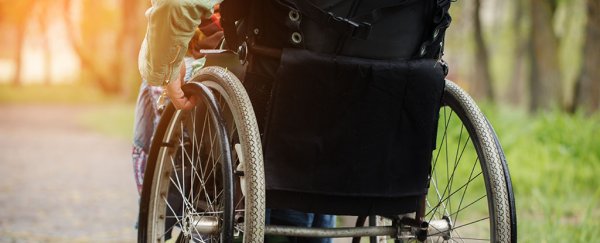For the second time in history, the US Food and Drug Administration (FDA) has approved a new drug specifically for the treatment of ALS (amyotrophic lateral sclerosis), also known as Lou Gehrig's disease.
The new drug is called edaravone. It will be marketed in the US under the brand name Radicava, and it's only the second ALS-specific drug ever to be approved by the FDA.
It's an exciting development, since roughly 5,000 Americans are diagnosed with ALS every year, and there's currently no cure.
"This is the first new treatment approved by the FDA for ALS in many years, and we are pleased that people with ALS will now have an additional option," FDA representative Eric Bastings said in a press statement.
ALS is a neurodegenerative disease - it attacks the nerve cells that control voluntary muscle movements (hence it's also called MND, motor neurone disease). As these cells break down and die over time, muscles become weaker until the person is unable to walk, talk, chew or breathe on their own.
Survival prognosis for ALS is highly variable, but the average life expectancy once you've been diagnosed is only two to five years, with most people dying from lung failure.
Edaravone is by no means a cure, but clinical trials have shown it can slow down the progress of the disease.
Originally a stroke treatment, the drug was developed by Mitsubishi Tanabe Pharma Corporation in Japan, where it has been used for ALS patients since 2015.
The previous FDA-approved drug specifically for slowing down ALS was riluzole in 1995, and for the 22 years since it's been the only option for most patients.
Advocacy groups are pleased that the tide is finally changing.
"We hope today's announcement signals the beginning of a new chapter in the fight against this terrible disease," says Barbara Newhouse, president of the non-profit ALS Association.
"There are several drugs to treat ALS currently in clinical trials and we are hopeful that people living with ALS have even more therapies available to them sooner rather than later."
But Radicava won't be cheap, and it's not easy to administer. People keen on the treatment need to receive daily one-hour intravenous infusions for 14 days straight, and then have 14 days off.
After the initial dose, then it's down to 10 infusions out of 14 days, and another two weeks off. And so on.
At US$1,086 per infusion, the annual cost of the treatment before government discounts or insurance would be US$145,524, although the pharmaceutical company is working on a co-payment plan, with hopes that some patients might even qualify for free treatment.
And for all that, the drug won't make an immediate difference in the patient's lives, as Neil A. Shneider from Columbia University Medical Centre explained to Denise Grady at The New York Times. Edaravone can slow down the progression of the disease, but won't improve symptoms.
Regardless, for the thousands of people affected by the incurable condition, this is an exciting development.
"It's exciting. I expect many, if not all, of our patients will be lining up to try to get the medication," Mayo Clinic's ALS Clinic director Nathan Staff told Matthew Herper at Forbes.
There's still a lot we don't know about ALS, especially when it comes to its causes. Only 5-10 percent of cases are inherited, while the rest happen out of the blue.
Research is ongoing to find potential causes, and scientists are looking at possible gene mutations, chemical imbalances or immune responses that could be to be blame.
According to the ALS Association, Radicava will be available in the US from August. Let's hope that the FDA decision sets an example for other countries, too.
